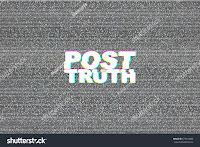On the opinion page of the Catholic Times, a parish priest in the Eyes of Believer column gives his thoughts after watching the movie: "Don't Look Up".
To put it simply, here's what the movie is all about. With only six months left before the destruction of the Earth due to a comet collision, political power is busy maintaining its approval rating and power. Companies are using the relationship between politics and the economy as an opportunity for profits. The media also does not report the crisis as a crisis, concerned with ratings and number of views. Social media is distorting and manipulating public opinion, obsessed with entertainment news and stimulating memes. The truth of the comet collision is ignored, and humanity is destroyed.
He noticed watching the movie that the social system avoided talking about the destruction of the Earth. This was because the social system had already lost its function, and was paralyzed. It shows that each system is a 'post-truth society'. (Relating to or denoting circumstances in which objective facts are less influential in shaping public opinion than appeals to emotion and personal belief).
It's not just a story in a movie. How prevalent is 'post-truth' in our real world? In public opinion, claims that appeal to emotions are more influential than truth, and in politics, there is a strong tendency to focus on populism and political strife rather than policies. Moreover, due to the popularized digital culture, 'post-truth' is commonplace in all public spheres: politics, economy, society, and culture.
In this era, emotions and beliefs take precedence over truth and morality, and the tendency to see only what we want to see and hear only what we want to hear from the enormous amount of information.
Scientists have been predicting a climate crisis for a long time, but former U.S. President Donald Trump, several times during his tenure, declared the climate crisis a "blatant lie" and withdrew from the Paris climate accord in 2019, and the United States actually withdrew the following year. This is despite the unprecedented disasters such as storms, forest fires, and floods due to global warming. The media is headed for commercialization with distorted, fabricated, and fake news, which erodes trust and public interest.
The consequences of this phenomenon are exemplified by the case of two young people with bright futures who died by their own hands last month. The unfounded suspicions raised by malicious You Tubers called 'cyber-wreckers' who with indiscriminate use of malicious comments responded and the irresponsible media that mass-produced articles carrying such content collaborate for an unfortunate result. As in the movie 'Don't Look Up, we learn the lesson that when the inherent functions of the social system do not work properly, it can only lead to terrible disasters.
Even if we live in a society where collectivism and totalitarianism lose their place in the 21st century and individualism dominates, the impact that social systems have on individuals cannot be ignored. It is said that the more single-person households become more dominant, the more fragmented and atomized individuals become, but under the umbrella of the capitalist social system, they are defined as the masses or consumers, not 'real individuals' with a sense of social responsibility as subjects of rights.
Will the public, who constantly consume social media through smartphones be free from 'post-truth'? Although social media is information that has not undergone any verification, only the greater the number of 'likes', the more reliable the information and accepted as if true. In addition, users' confirmation bias is reinforced because they click only information with a lot of 'likes'.
Therefore, as in the movie "Don't Look Up," the phenomenon that scientific facts and objective truths are despised is being reproduced in the real world. We should always bear in mind Pope Francis's criticism of the 'post truth' era.
"We need constantly to ensure that present-day forms of communication are in fact guiding us to generous encounter with others, to the honest pursuit of the whole truth, to service, to closeness to the underprivileged, and to the promotion of the common good. As the Bishops of Australia have pointed out, we cannot accept "a digital world designed to exploit our weaknesses and bring out the worst" ( All Brothers
#205)
